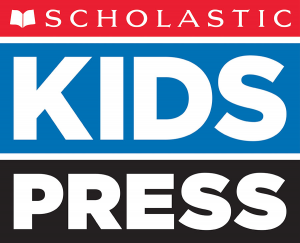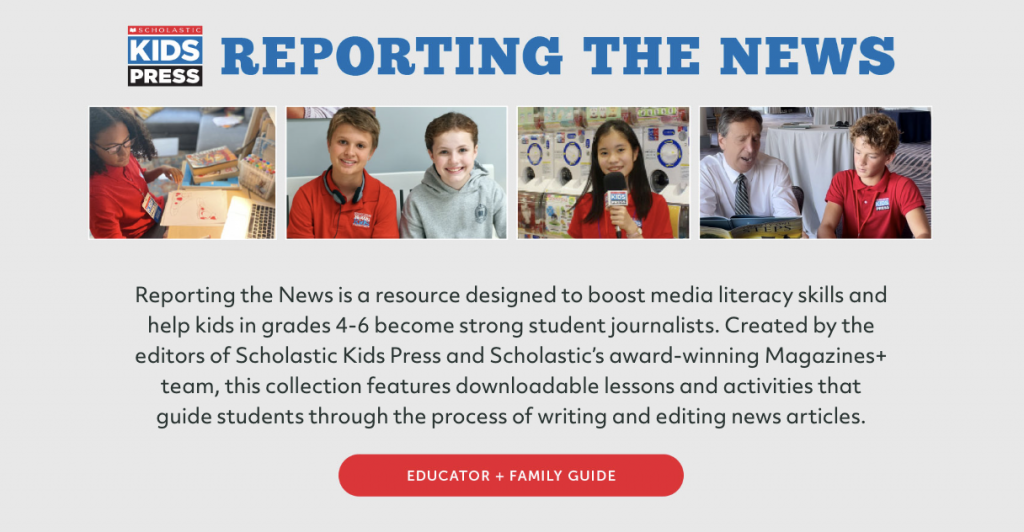Q&A: Reporting the News and Media Literacy

Suzanne McCabe, Editor of Scholastic Kids Press and one of the creators of Reporting the News, answers the CBC’s questions.
Scholastic has created a new free resource, Reporting the News, helping students hone valuable journalism and media literacy skills, which will help them grow to become informed and engaged citizens.
Why and how is news consumption literacy beneficial?
In a digital world, news is everywhere. Kids benefit from having a trusted adult help them understand complex issues they hear about, many of which affect their lives and future. At the same time, by consuming and understanding the news, children are developing vocabulary and critical thinking skills and building empathy.
Our mission at Scholastic is to provide young readers with accurate, up-to-date information on issues that matter to them so that they can better understand themselves and the world around them. Fundamental to that is understanding how the news is made. That’s why our team at Scholastic created Reporting the News, a free resource that helps students hone valuable journalism and media literacy skills, helping them become informed and engaged citizens.
Reporting the News is a collection of five easy-to-use activities that outline the process of researching, writing, and editing news articles for students in grades 4-6. It was inspired by the success of our award-winning Scholastic Kids Press program, which has given students the opportunity to report “new for kids, by kids” for more than 20 years.
What are some tips for families and teachers to help them support and guide kids in understanding journalism and media literacy skills?
We do a great service to kids when we show them how to select reliable sources of information and think critically about what they read. It’s important for families to have age-appropriate conversations about events in the news. Kids often see more than we realize. As caring adults, it’s our responsibility to help them make sense of complex events. Encouraging children to write about what they’re seeing is another great way to empower them and help them realize that everyone’s story matters, even theirs.
Share one or more ways you found that have helped you deal with the past couple of years (mental and physical health, friends and family, news and social changes, etc.)
Reading and connecting with friends and family, even via Zoom, helped me get through the pandemic. When the future seemed uncertain, working with our talented group of Scholastic Kid Reporters gave me hope. Although much of their reporting took place virtually for the first year of the pandemic, they were able to tell the stories of their generation—from having parents on the front lines, to shifting to online learning, to explaining how healthcare workers were caring for people with COVID-19.
What advice has stuck with you for a long time? Who gave you that advice?
“Look it up.” That’s advice my dad gave me whenever I asked what a word meant. Today, if Scholastic Kid Reporters have questions about the stories they’re covering, I tell them to dig deeper for information. They’re amazed by what they find, as am I.

Learn more about Scholastic’s new free resource, Reporting the News.

